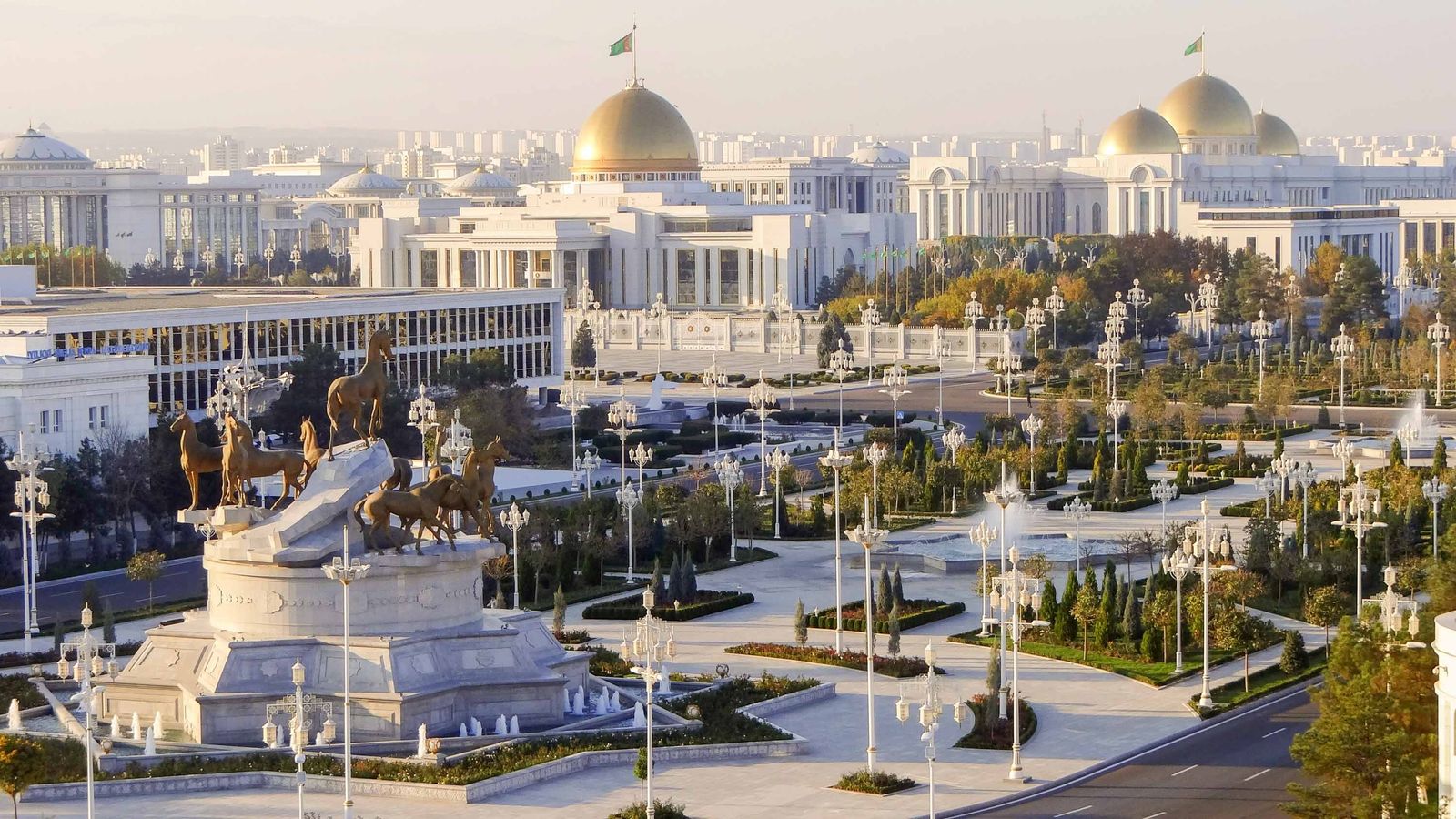
Ever wondered about Turkmenistan? This Central Asian country, often overlooked, holds a treasure trove of intriguing facts. From its vast deserts to its rich cultural heritage, Turkmenistan offers a unique blend of history and mystery. Did you know it’s home to the Darvaza Gas Crater, famously known as the "Door to Hell"? Or that its capital, Ashgabat, boasts some of the most stunning white marble buildings in the world? Turkmenistan also has a fascinating tradition of carpet weaving, with designs that tell stories passed down through generations. Ready to dive into 20 captivating facts about this enigmatic nation? Let's get started!
Key Takeaways:
- Turkmenistan is a desert-dominated country with stunning landscapes, including the fiery Darvaza Gas Crater and the picturesque Kopet Dag mountain range.
- Turkmenistan's rich history, vibrant culture, and valuable natural resources shape its unique way of life, economy, and society.
Geography and Landscape
Turkmenistan, located in Central Asia, is known for its unique geography and stunning landscapes. Here are some fascinating facts about this country’s terrain.
- Turkmenistan is predominantly desert, with the Karakum Desert covering about 70% of its land area.
- The country is home to the Darvaza Gas Crater, also known as the "Door to Hell," a fiery pit that has been burning since 1971.
- The Kopet Dag mountain range forms a natural border between Turkmenistan and Iran, offering breathtaking views and diverse wildlife.
- Turkmenistan has a coastline along the Caspian Sea, the world's largest inland body of water.
History and Culture
Turkmenistan boasts a rich history and vibrant culture that dates back thousands of years. These facts highlight some key aspects of its heritage.
- The ancient city of Merv, once one of the largest cities in the world, is a UNESCO World Heritage Site.
- Turkmenistan was part of the Silk Road, a historic trade route connecting the East and West.
- The Akhal-Teke horse, known for its speed and endurance, is a national symbol of Turkmenistan.
- Turkmenistan celebrates Novruz Bayram, a traditional New Year festival marking the arrival of spring.
Government and Politics
Understanding Turkmenistan's government and political landscape provides insight into how the country operates. Here are some important facts.
- Turkmenistan gained independence from the Soviet Union on October 27, 1991.
- The country is a presidential republic, with the president holding significant power.
- Gurbanguly Berdimuhamedow has been the president since 2007, succeeding Saparmurat Niyazov, who ruled from 1991 to 2006.
- Turkmenistan is known for its policy of neutrality, which was recognized by the United Nations in 1995.
Economy and Resources
Turkmenistan's economy is heavily influenced by its natural resources and strategic location. These facts shed light on its economic landscape.
- The country has the fourth-largest reserves of natural gas in the world.
- Turkmenistan's economy relies heavily on the export of natural gas, cotton, and oil.
- The Karakum Canal, one of the longest irrigation canals in the world, plays a crucial role in the country's agriculture.
- Turkmenistan is investing in renewable energy, with plans to develop solar and wind power projects.
People and Society
The people of Turkmenistan have a unique way of life shaped by their traditions and environment. Here are some interesting facts about its society.
- Turkmenistan has a population of about 6 million people, with the majority being ethnic Turkmen.
- The official language is Turkmen, but Russian is also widely spoken.
- Traditional Turkmen clothing includes the telpek, a sheepskin hat worn by men, and the keteni dress, made from silk, worn by women.
- Education is highly valued, with a literacy rate of nearly 100%.
Fascinating Turkmenistan Awaits
Turkmenistan, with its rich history, unique culture, and stunning landscapes, offers a treasure trove of experiences. From the ancient ruins of Merv to the modern marvel of Ashgabat, this Central Asian gem is full of surprises. The Darvaza Gas Crater, often called the "Door to Hell," is a sight you won't forget. Turkmenistan's traditional crafts, like carpet weaving, showcase the nation's artistic heritage. The Ahal-Teke horses, known for their beauty and endurance, are a national pride.
Travelers will find a mix of ancient traditions and modern developments. The hospitality of the Turkmen people adds warmth to any visit. Whether you're exploring the Karakum Desert or enjoying the Caspian Sea coastline, Turkmenistan promises an adventure like no other. So, pack your bags and get ready to uncover the wonders of this captivating country.
Frequently Asked Questions
Was this page helpful?
Our commitment to delivering trustworthy and engaging content is at the heart of what we do. Each fact on our site is contributed by real users like you, bringing a wealth of diverse insights and information. To ensure the highest standards of accuracy and reliability, our dedicated editors meticulously review each submission. This process guarantees that the facts we share are not only fascinating but also credible. Trust in our commitment to quality and authenticity as you explore and learn with us.


